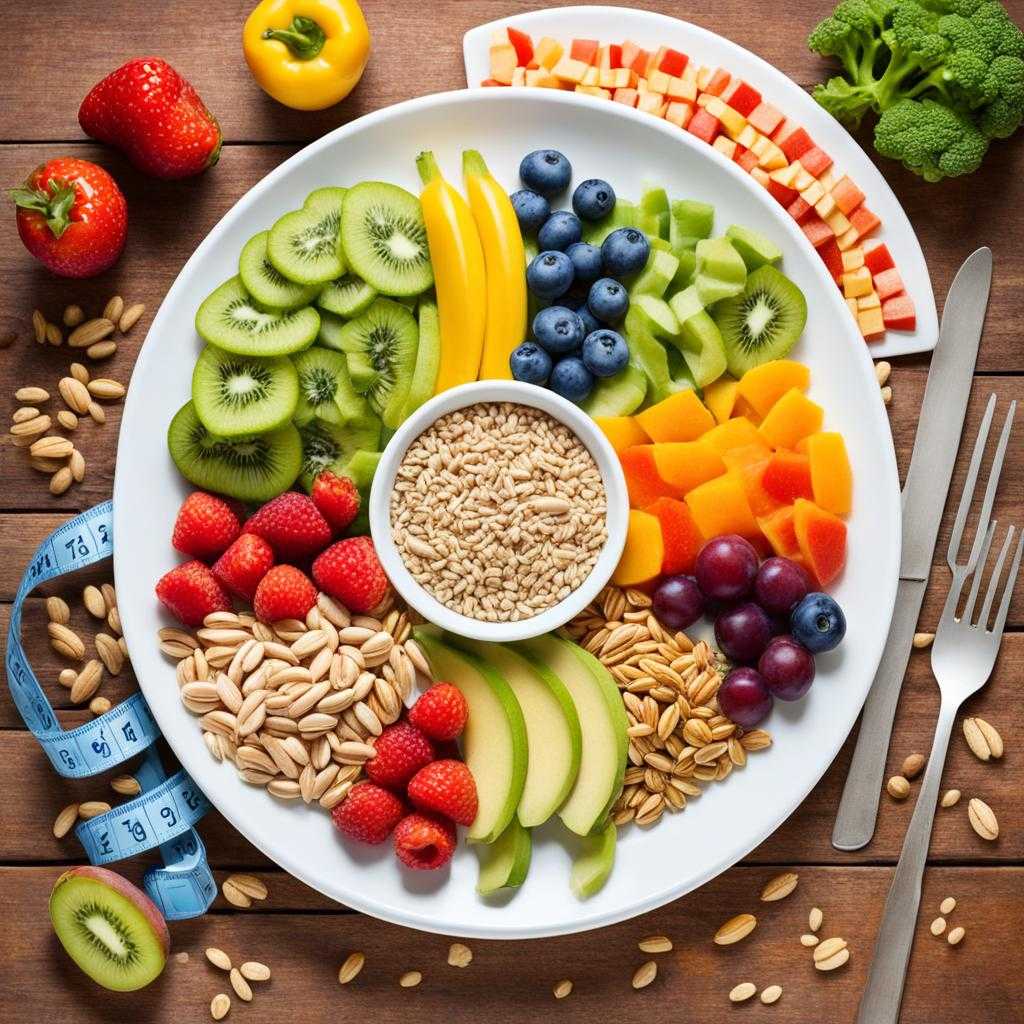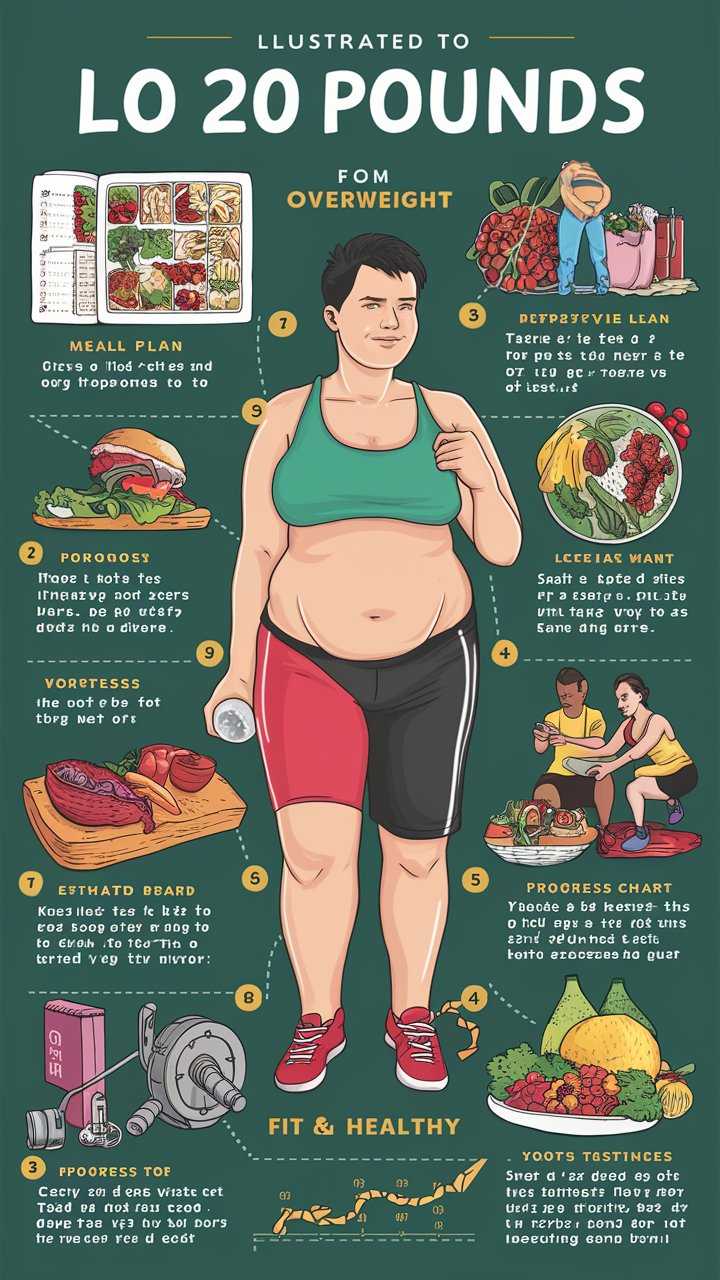How to Lose 50 Pounds in 3 Months: Safe Weight Loss Tips
Discover safe and effective strategies to lose 50 pounds in 3 months. Learn about diet, exercise, and lifestyle changes for sustainable weight loss and improved health.
Starting a weight loss journey to lose 50 pounds in 3 months is a big goal. It’s doable but needs careful planning. We’ll look at safe ways to lose weight and improve your health for the long term.
Key Takeaways
- Losing 50 pounds in 3 months is not recommended by health experts due to the risks of rapid weight loss.
- A more realistic and sustainable goal is to aim for 12-24 pounds of weight loss in 3 months.
- Focus on creating a calorie deficit through a balanced diet and regular exercise to achieve gradual, healthy weight loss.
- Prioritize nutrient-dense foods and incorporate high-intensity interval training (HIIT) and strength training to boost your metabolism.
- Develop a positive mindset and stay motivated throughout your weight loss journey for long-term success.

Introduction: The Challenge of Losing 50 Pounds in 3 Months
Losing weight can change your life, improving your health both physically and mentally. But losing 50 pounds in 3 months is hard, especially for safe weight loss, sustainable weight loss, and long-term weight loss.
It’s tempting to try quick fixes for weight loss. But, it’s important to know the risks. Jumping into a weight loss plan without a good plan can harm your health. It can mess up your metabolism and make it hard to keep the weight off.
“Sustainable weight loss is not about quick fixes or fad diets; it’s about adopting healthy habits that can be maintained for a lifetime.”
We’ll look at the challenges of losing 50 pounds in 3 months. We’ll also talk about what makes a safe weight loss plan. Understanding sustainable weight loss and long-term weight loss strategies helps you start a lasting, positive change.
There’s no one right way to lose weight safely and keep it off. It needs a plan that fits you, knowing your needs, and making lasting changes. We’ll go into how to do safe weight loss and long-term weight loss in a smart way.
Is Losing 50 Pounds in 3 Months Safe?
Trying to lose 50 pounds in three months is a big goal that worries health experts. They say it’s not safe or sustainable. Such quick weight loss can lead to health problems.
Potential Health Risks of Rapid Weight Loss
Fast weight loss can stress your body and mess with important body processes. The dangers of rapid weight loss include:
- Nutrient deficiencies: Eating fewer calories can mean not getting enough vitamins and minerals.
- Muscle loss: Losing weight too fast can mean losing muscle, which slows down your metabolism and makes it harder to keep weight off.
- Gallstones: Losing weight quickly can raise your risk of getting gallstones, which are painful and need medical care.
- Dehydration: Quick weight loss can cause dehydration, leading to headaches and feeling tired.
- Organ damage: Cutting calories too much can strain your heart, kidneys, and other vital organs, causing long-term health problems.
Recommended Weight Loss Rate
Health experts suggest losing 1 to 2 pounds a week. This means losing 12 to 24 pounds in three months. This is a safer and healthier way to lose weight than the 50-pound goal.
Slower weight loss lets your body adjust better and lowers the risk of health issues. It also helps you keep the weight off for good, as quick weight loss often leads to gaining it back.
“Crash dieting and extreme weight loss measures can do more harm than good. Slow and steady is the healthier approach for lasting results.”
Realistic Weight Loss Expectations in 3 Months
Setting realistic weight loss goals is key for success. Losing 50 pounds in 3 months sounds great but isn’t safe or sustainable. A better goal is losing 12 to 24 pounds.
How much weight you can lose depends on your age, sex, starting weight, and health. Being consistent with diet and exercise is crucial. Slow, steady changes lead to lasting results, not quick, big changes.
Let’s look at an example:
| Starting Weight | Realistic Weight Loss in 3 Months | Percentage of Body Weight Lost |
|---|---|---|
| 250 pounds | 18-24 pounds | 7.2% – 9.6% |
| 200 pounds | 15-20 pounds | 7.5% – 10% |
| 150 pounds | 12-16 pounds | 8% – 10.7% |
Focus on slow, healthy changes for lasting weight loss. Unrealistic goals can lead to frustration and give up. Setting realistic weight loss goals keeps you motivated and leads to lasting results.
“Consistency is the key to sustainable weight loss. Gradual changes are more likely to lead to long-term success than drastic measures.”
Create a Calorie Deficit Diet Plan

To lose weight, focus on creating a calorie deficit. This means eating fewer calories than your body burns daily. By doing this, you can safely and sustainably lose weight and meet your goals.
Calculating Your Calorie Needs
Start by figuring out how many calories you need daily. This depends on your age, sex, height, weight, and how active you are. Use online tools or talk to a dietitian to find your basal metabolic rate (BMR) and total daily energy expenditure (TDEE).
Tracking Calorie Intake
After figuring out your calorie needs, try to eat 500-1,000 calories less each day. This can lead to losing 1-2 pounds a week, which is healthy and sustainable. Keep track of your calories with a food journal or app to help you stay on track.
A calorie deficit diet isn’t about eating very little or starving. It’s about finding a balance to fuel your body while losing weight at a healthy pace.
“The key to sustainable weight loss is creating a calorie deficit through a balanced, nutrient-dense diet, not extreme calorie restriction.”
With a good calorie deficit diet plan and tracking your intake, you’re on your way to losing 50 pounds in 3 months.
Prioritize Nutrient-Dense Foods
Trying to lose 50 pounds in 3 months means eating foods that are full of nutrients. These foods will keep you full and satisfied. Focus on lean proteins and high-fiber fruits and vegetables. This way, you’ll eat fewer calories but still get the nutrients your body needs.
Lean Protein Sources
Adding lean protein to your meals helps with muscle health and keeps you feeling full for a long time. Great choices include:
- Chicken breast
- Turkey breast
- Lean cuts of beef
- Seafood like salmon, tuna, and shrimp
- Tofu and other soy-based proteins
High-Fiber Fruits and Vegetables
Eating high-fiber fruits and vegetables makes you feel full with fewer calories. Here are some great options:
- Berries (blueberries, raspberries, blackberries)
- Avocados
- Leafy greens (spinach, kale, arugula)
- Sweet potatoes
- Broccoli and cauliflower
These nutrient-dense foods help you lose weight and give you important vitamins, minerals, and antioxidants. They keep you healthy while you’re changing your body.
| Nutrient-Dense Foods | Nutrient Content |
|---|---|
| Chicken breast | High in protein, low in fat |
| Blueberries | High in fiber, antioxidants, and vitamins |
| Spinach | High in fiber, vitamins, and minerals |
| Salmon | High in protein and healthy omega-3 fatty acids |
| Sweet potatoes | High in fiber, vitamins, and complex carbohydrates |
“Focusing on nutrient-dense, high-protein and high-fiber foods is key to losing 50 pounds in 3 months without compromising your health.”
Incorporate High-Intensity Interval Training (HIIT)
Adding high-intensity interval training (HIIT) to your diet can help you lose weight. HIIT workouts mix intense exercise with rest periods. This mix increases calorie burn during and after the workout.
HIIT workouts are great for losing 50 pounds in 3 months. They push your body hard, raising your heart rate and burning calories even after you stop.
Here are some key benefits of adding HIIT to your routine:
- Maximized Calorie Burn: HIIT workouts burn more calories in less time than steady-state cardio.
- Improved Cardiovascular Fitness: High-intensity intervals boost heart health and fitness.
- Enhanced Fat Loss: HIIT targets stubborn body fat, especially around the midsection.
Start slowly when adding HIIT to your plan. Begin with short intervals, like 20-30 seconds of intense exercise followed by 60-90 seconds of rest. Then, gradually increase the intensity and duration.
| HIIT Workout Example | Duration | Calories Burned* |
|---|---|---|
| Jumping Jacks | 20 seconds | 10 calories |
| Mountain Climbers | 20 seconds | 12 calories |
| Burpees | 20 seconds | 15 calories |
| Rest | 60 seconds | N/A |
*Calorie burn estimates based on a 150-pound individual.
By adding HIIT workouts to your routine, you can boost your fat-burning and reach your weight loss goal of 50 pounds in 3 months.
“HIIT workouts are one of the most efficient ways to burn fat and build endurance. The high-intensity intervals push your body to its limits, leading to impressive calorie and fat loss results.”
Build Muscle with Strength Training
Cardio exercises are key for losing weight, but don’t forget strength training. It helps build muscle and keeps it from getting lost while you’re losing weight.
Try to do full-body strength training two to three times a week. This keeps and grows lean muscle mass. It also gives you a metabolic boost to help with weight loss.
- Focus on compound exercises that work many muscles, like squats, deadlifts, and pull-ups.
- Use different resistance tools, such as dumbbells, resistance bands, and bodyweight exercises.
- Slowly increase the weight, reps, and intensity to keep challenging your muscles and promote muscle-building.
Adding strength training to your weight loss plan can change the game. It makes you look and feel stronger. It also boosts your metabolism, making it easier to lose 50 pounds in 3 months.
“Strength training is one of the most effective ways to boost your metabolism and support long-term weight loss.”
lose 50 pounds in 3 months: Strategies for Success

To lose 50 pounds in 3 months, focus on strategies that support a lasting lifestyle change. Meal planning and preparation, along with staying hydrated, are crucial. These elements can help you reach your weight loss goals.
Meal Planning and Preparation
Meal planning and preparation are key to having healthy, portion-controlled meals ready. Planning your meals ahead helps you manage your calorie intake and stick to your weight loss plan. Here are some tips to start:
- Create a weekly meal plan with lean proteins, high-fiber vegetables, and whole grains.
- Prepare meals in advance, like batch cooking or meal prepping, for easy access to healthy food.
- Use reusable meal prep containers to portion out meals and snacks easily.
- Find healthy recipes that taste great and keep you full.
Stay Hydrated
Drinking enough water is vital for weight loss. It supports your metabolism, helps control hunger, and prevents overeating. Try to drink at least eight 8-ounce glasses of water daily. Add other hydrating drinks, like herbal tea or infused water, to your routine.
By focusing on meal planning, preparation, and hydration, you can lose 50 pounds in 3 months sustainably. This approach supports your health and well-being.
| Meal Planning Strategies | Hydration Tips |
|---|---|
|
|
“Proper meal planning and staying hydrated are key to achieving sustainable weight loss. These habits can help you stay on track and feel your best throughout your journey.”
Overcoming Plateaus and Challenges
Weight loss is a journey, and you might hit weight loss plateaus or face weight loss challenges. It’s important to stay motivated and keep going to overcome obstacles and reach your goals.
One big reason for weight loss plateaus is your metabolism slows down as you lose weight. Your body needs fewer calories to stay at a lower weight. To get past a plateau, you might need to eat fewer calories and exercise more.
- Recalculate your calorie needs: Use an online calculator or talk to a professional to find out how many calories you need now, based on your weight and activity level.
- Try new workout routines: Adding more high-intensity interval training (HIIT) or strength training to your routine can boost your metabolism and help you get past a plateau.
- Address lifestyle factors: Make sure you’re getting enough sleep, managing stress, and drinking plenty of water, as these can affect your weight loss.
Dealing with cravings and temptations is another challenge in weight loss. To beat this, eat more nutrient-dense, filling foods like lean proteins, high-fiber fruits and vegetables, and healthy fats. Also, planning meals in advance and having support can help you stay on track.
| Common Weight Loss Plateaus | Strategies to Overcome Them |
|---|---|
| Decreased Metabolic Rate | Recalculate calorie needs, try new workout routines, address lifestyle factors |
| Cravings and Temptations | Incorporate nutrient-dense foods, meal prep, and build a support system |
| Injury or Illness | Work with a healthcare professional to modify your plan, focus on nutrition |
Remember, losing weight isn’t always straight forward. You’ll face setbacks and challenges along the way. The important thing is to stay flexible, keep going, and focus on your health and wellness goals.
“The secret of getting ahead is getting started. The secret of getting started is breaking your complex overwhelming tasks into small manageable tasks, and then starting on the first one.” – Mark Twain
Mindset and Motivation for Long-Term Success

Long-term weight loss isn’t just about diet and exercise. It’s also about having a positive mindset and staying motivated. The key to success is having the right mindset and finding your motivation.
Start by setting realistic goals. Don’t aim to lose 50 pounds in 3 months, as this can lead to frustration. Instead, set smaller, achievable goals. Celebrate every pound lost and every positive change in your health.
Make the process of losing weight enjoyable. Find activities you love, like dancing or hiking. Try out healthy recipes that taste good. Enjoying the journey makes it easier to stick with your plan.
“The secret of getting ahead is getting started. The secret of getting started is breaking your complex overwhelming tasks into small manageable tasks, and then starting on the first one.”
Remember, losing weight is a journey, not a goal. This mindset helps you handle ups and downs and keep a healthy lifestyle after reaching your goal. Celebrate your progress, learn from setbacks, and keep focusing on your well-being for lasting weight loss.
| Strategies for Cultivating a Positive Weight Loss Mindset | Tactics to Boost Weight Loss Motivation |
|---|---|
|
|
Conclusion: A Sustainable Approach to Weight Loss
Losing 50 pounds in 3 months is not safe or realistic. Aim for a slower, more sustainable weight loss of 12 to 24 pounds instead. This can be done by eating well and exercising regularly. This way, you’ll see lasting results without harming your health.
Weight loss is a journey, not a race. Be patient and celebrate your small wins. Focus on making lifestyle changes you can keep up with. Weight loss is about building healthy habits that fit into your daily life.
For long-term weight management, focus on your whole well-being. Choose a healthy weight loss plan that feeds your body, supports your activity, and keeps you positive. This balanced approach leads to lasting changes and a happier, healthier life.











